#Seafort Saga
Text

happy pride month seafort fandom
2 notes
·
View notes
Text
Novel Deck
I had another birthday in July, taking me from "playing with a full deck" to "in the prime of my life". I celebrated the day, as I celebrate every day, by reading. The results of this daily celebration of reading for the month of July can be seen herein…
(Possible spoilers for the Wild Cards series, David Feintuch's Nicholas Seafort series, Michelle Sagara's Elanta series, Faith Hunter's Jane Yellowrock series, and Lois McMaster Bujold's Vorkosigan Saga, among others...)
J.V. Jones: A Cavern of Black Ice, completed July 2
With my current carved-in-stone reading cycle, after I reread I go to either "diversity" slot, or "trying a new author" slot, and this was time for a new author. Often some author or book has caught my attention and so I have already picked it out a while in advance, but this time all I had was "female author", and probably not space opera after the Vorkosigan book I'd just reread. I browsed the pool table where my new-authors-to-try books are collected, and I ended up drawn to this big thick fantasy novel by J.V. Jones. Like, 932 pages thick. Since under 100 pages per day is my usual pace, I decided to schedule it for 10 days of ~93 pages/day, which is about an hour and a half of reading every day; some days that's easier than others, and those days are the ones I make progress on my nonfiction book or whatever.
These days when I'm trying a new author, I give myself permission to just not finish the book if I'm not enjoying it, and especially if it's something thick like this. I've bailed on a few of those. So I was pleasantly surprised to find the book keeping my interest. There was one scene in the first chapter where the characters were having a scene of lighthearted rivalry that seemed a little meh, but things quickly took a turn for the darker so there wasn't any more of that. I mean, it's not that I only like grimdark fantasy or anything like that, but several of the books that I did stop were because the characters didn't feel like they had enough emotional depth.
There are inevitable comparisons to A Song of Ice And Fire here that keep coming up. For one thing, the majority of the action is taking place in cold northern climates, and a lot of it in winter, so there's that. There are also distant and uncaring gods, a tribal leader who keeps reminding me of something between Walder Frey and Tywin Lannister, and characters who keep having to carry on when they're badly hurt and nearly frozen. But there's a fair amount of actual magic, something that George R.R. Martin shied away from, though it is costly and doesn't always do the main characters all that much good.
Our main characters are Asarhia "Ash" March, a girl who was born outside the gates of a city in the prologue, and was adopted as a founding by the sinister Penthero Iss, who has Plans for her; and Raif Sevrance, a young clansman from the Blackhail clan, whose life is turned upside down when his father and the chief are slaughtered while he and his brother were out of the camp, and the chief's slimy foster son takes over. We also get POV from Iss himself, as well as Raif's young sister Essie (whose inclusion also feels vaguely Martinesque), Vaylo Bludd (leader of a rival clan, the Frey/Tywin analogue I mentioned earlier), and occasional others. The clans feel fairly authentic, mostly somewhat Germanic with cold-weather adaptations (and there are definite Inuit analogues around there too).
There are a few places where random helpful people show up to help out our main characters, but in general they seem to be well foreshadowed so it doesn't feel like too much of a cheat. One of them turns out randomly to be Raif's uncle, which maybe stretches things a bit, but mostly it's fine. I do have a little trouble taking the Bludd Clan too seriously because the name feels a little silly. (Would it be better if it was just "Blood"? Maybe?) But these are minor nitpicks, and I generally enjoyed the book, harrowing as it was at times. Unfortunately, that means I will now have to find copies of the undoubtedly-out-of-print-except-as-overpriced-ebook sequels…
George R.R. Martin (editor): Mississippi Roll, completed July 6
Next book would be a male author (or, in this case, male editor with both male and female contributors), and not a big thick epic fantasy. I ended up picking the next book in the Wild Cards series, which I'm amazed is still going. I started reading it in the early years, and bogged down a bit (particularly after Aces Abroad, the fourth book, which I didn't really care for). Back then I was only really interested in the characters with superpowers, not the jokers or skilled "nat" characters. The series initially ran for twelve books, and then a sequel trilogy, and then it stopped for a while. When I started doing more rereads, I ended up doing a reread of all fifteen, and by then there were more. There were two books after that published only as ebooks, which I didn't read for years, but eventually I did get ebook-reading capabilities and went on. And the series had started up again too, with a new generation of heroes (and some new writers).
The basic premise of the series is that, just after World War II, an alien virus was released on Earth, which caused many of the people exposed to it to die, many of the survivors to be deformed, and a lucky few acquired superpowers. When it came out, there were a number of shared-world series like Thieves' World and Heroes In Hell, but this was different, with superheroes in a more modern setting. After the first book, which covered the first few decades of the world with the Wild Cards virus, each book was taking place in a more or less contemporary timeframe. It was always grittier than comic-book heroes, but then it was the era of "Watchmen" and such when it first came out. The books weren't all in the same format, either: some of them were collections of more-or-less unrelated stories, each with a different writer; some of them were interleaved and overlapping short stories; some of them were "mosaic novels" where multiple writers wrote different characters interacting over the same timeline; and there were even a few single-author novels. George R.R. Martin was one of the early contributors (long before A Game of Thrones), and others included Walter Jon Williams, Roger Zelazny, Howard Waldrop (whose idea it was, apparently, to start the timeline in 1946), Melinda Snodgrass. Edward Bryant, Pat Cadigan, Stephen Leigh, David Anthony Durham, Lewis Shiner, Mary Anne Mohanraj, and dozens more. Often the books end up in three-volume arcs, and this is starting a new one. The books are almost all card references of some type, and this seems to start a sequence of books named after types of poker. It seems to have something to do with a riverboat.
It turns out that this book is not really the first of a new arc; although this book and the next two, Low Chicago and Texas Hold 'Em, are labelled "The American Triad", it actually seems like each book is supposed to be self-contained, and each trumpets that it would be a great starting point. I guess they want to attract readers who haven't read all 23 previous volumes or something? So it is strictly linked short stories, with one framing story that has its own resolution. The aces (and jokers) who show up are almost all ones that have been in earlier volumes, and the central plot has to do with Kazakh joker refugees from the last book (with ICE villains). It's not the strongest Wild Cards collection, unfortunately; in fact it may be the weakest since Aces Abroad in many ways, but it's not bad.
David Feintuch: Children of Hope, completed July 13
I wasn't sure what to go on to after the Wild Cards book, apart from "male author". I wasn't yet ready for another thick epic fantasy, and Wild Cards, as a superhero book, fits vaguely into "urban fantasy" (if you squint), so I decided to look at science fiction. (I already knew my next book would be a reread, but a Star Trek novel, in a slight break from the Vorkosigan series.) And I ended up picking this one, which would finish off a series.
Feintuch's Nicholas Seafort series is interesting, if sometimes problematic. The initial quartet follows Nicholas Seafort from his early days as a midshipman on a spaceship. Seafort is constantly tormented by the fact that, to do the right thing, he has to, as he sees it, compromise his honour and damn his soul to hell. And yet he does it, and is widely lauded as a hero for it, which is a torture that Aral Vorkosigan would definitely empathize with. The problematic parts, which are a thread through every book and so it's hard to tell if they align with the author's belief system or not, are 1) a conviction that corporal punishment and discipline is a good way to make an unruly person not only behave, but thank you later for making them a better person, and 2) a strong religious background. After the initial quartet there was Voices of Hope, a multi-POV book not centered around Seafort (though I believe he was still there), which suffered as a result, and then Patriarch's Hope, a welcome return to Seafort.
This book, interestingly, is a single-POV book, but it's not Seafort this time. Instead it's about Randy, the teenage son of one of Seafort's oldest friends, who got killed in the last book, and he blames Seafort for his father's death. He starts off as a thoughtless, rebellious teen (though there's a framing story where he's giving testimony of some sort to a church official) who makes a bad decision in a rage and then has to deal with the consequences. Many characters from previous books show up.
It's actually pretty gripping, because we not only have Randy's personal problems (and his trying to coming to terms with Seafort), but we also have growing conflict with the religious leaders on the colony (all of whom seem to be just cartoonishly evil), and we have a first-contact story, which is done really well. Definitely mixed messages about religion--Seafort is fond of assigning Bible verse memorization for disciplinary purposes, for instance, but practically every other character who even shows the slightest respect to the actual church actually ends up betraying him before the end. The ending of the book is a little open-ended, which apparently may have been because Feintuch was working on a sequel that he never finished before his death. Even as it is, it makes a decent coda to the series.
Diane Carey: Final Frontier, completed July 18
Next was coming another reread, but one of the breaks in the Vorkosigan reread. Amongs the books I've been interspersing with my series rereads have been Discworld books, Dick Francis books, and a lot of the old Star Trek books I read in my teens. A lot of the latter have not held up and I've weeded them. This book, from 1988, was probably one of the last that I bought. Also, most of the novels were standard length for the time, which is to say around 200 pages, but around this time they had put out a few extra-large (over 400 page!!!) novels, all of them odd prequels. We had Enterprise: The First Adventure, which occurred when James T. Kirk first arrives on board the Enterprise; Strangers From The Sky, a flashback to first contact with the Vulcans (which didn't look much like the "Star Trek: First Contact" movie for some reason), and this one.
Diane Carey had written a couple of the shorter Star Trek books by this point. I had read her first one, Dreadnought!, where she had own characters, a young Starfleet officer and her Vulcan or half-Vulcan companion, and the standard Star Trek cast members were secondary; I don't know that I ever read the second, Battlestations!. Luckily this one didn't get the exclamation mark on the title.
The premise seems a little weak at first--it's a book about James Kirk's father, George Samuel Kirk, who was never a captain in his own right, but was apparently a Commander and first officer. Ho hum. And we start with a framing story, explicitly set just after "The City On The Edge of Forever", in which James Kirk is, in the wake of Edith Keeler's death, wrestling with the question of whether he even wants to be a starship captain any more. So he's moping back on the old family farm, reading his father's old letters, while McCoy and Spock attempt to chivvy him out of his mood.
So George Kirk was a mildly corrupt security officer on a starbase, bilking traders out of gambling money together with his friend Drake. And then he gets abducted, which is cool. But just to bring him to a secret Federation base, where he's being shanghaied onto a secret mission, with Captain Robert April, on a new untested starship, so new it doesn't even have a name yet (though it's probably going to be an NCC-1700-something-or-other, three guesses), where they're going to perform a daring rescue of some colonists dying of radiation poisoning in an ion storm, as a combination of mission of mercy and PR stunt for the new ships. Oh, and we also get viewpoint from some Romulan characters (in fact, Rihannsu Romulan, as introduced by Diane Duane back before there was much Romulan worldbuilding) for some reason. And it turns out that reason is that somebody sabotages April's unnamed ship, so that when it hits the ion storm the warp drive kicks into overdrive and they go waaaaay off course…in fact, into Romulan space!
Maybe it's the extra length allowing Carey the room to develop things more fully, but I found this a really engaging book, for the most part (I don't know that we needed the tiny romance between April and the medical officer). The intrigue among the Romulans was well done, the character conflicts between Robert April and George Kirk, and the tensions of having to deal with a ship with tremendous capabilities but only erratically available because it's a) unfinished, b) short-staffed, and c) often damaged. (Which works better here than in "Star Trek V: The Final Frontier", which by a weird coincidence I watched to the end for the first time while reading this book.) Suffers a little bit from the endemic 1980s random POV shifting, a.k.a. "headhopping", but it's not as bad as some books I've read. And there was also some real tension given that I didn't know whether or not Captain Kirk's father had actually disappeared mysteriously when he was ten years old, so I wasn't certain George was going to survive until the end of the book. So this held up surprisingly well and it's going to be one of the rare Star Trek books that I actually keep after this reread.
Michelle Sagara: Cast In Sorrow, completed July 23
Another female-author diversity slot, and once again I am using it for a Michelle Sagara West book. I went into some of her background back in my December book post, but basically, she seems to have her thick epic fantasy series under Michelle West, whereas under Michelle Sagara she has mainly relatively shorter works. Mainly, she has the Elantra series (or the "Cast" series, since the books in the series are all "Cast In something"), set mostly in the city of Elantra, with the main character of Kaylin Neya.
Kaylin was born in "the fiefs" in the city of Elantra, which are vaguely similar to the "hundred holdings" in the city of Averalaan in the Michelle West books, but with some differences. She's a low-ranking officer in the city guard, as every book tends to make a point of establishing early on, because otherwise we might forget it. She's a personal acquaintace of the fieflord Nightshade, she's been sort of adopted into the noble families of the ~elves~ Barrani, she has weird living runes all over her body which give her magical power which she is bad at controlling (except for healing, which is her spare-time avocation), she is friends with several dragons (dragons in mostly-humanoid form run most of the city), and in general she hobnobs, awkwardly, with a lot of the movers and shakers of the kingdom.
The books tend to be self-contained, though with threads that continue from book to book; this book is a bit of an exception, as a direct continuation of the previous book, Cast In Peril, which I presume just grew too long for one volume. It takes her out of her comfort zone (the city of Elantra) and across country to take part in a Barrani ritual, at the behest of Lord Nightshade, whom she owed a favour from an earlier book. Also from the previous book, she has a small dragon-like being (a "familiar") accompanying her, and nobody quite knows what to make of it.
Sagara/West is definitely a fan of the softer, vibes-based type of magic. Kaylin (like Jewel ATerafin) will do things based on instinct, not always sure if she can do them at all. Except that Kaylin can mostly do stuff based on the runes on her body--taking runes off of her body or absorbing other runes she finds. She has to do a number of very vague magics, many of them involving her Barrani colleague Teela, who was part of an earlier iteration of the ritual that went awry, and assemble a "story" with the help of Lord Nightshade. There's also some Barrani not-quite-politics, much of which (like the magic) revolves around the fact that some Barrani (and Kaylin) have "Names".
Perhaps because so much of the story is based strongly on what happened in the previous book, and also from Cast In Courtlight, the second book in the series and the first Barrani-centered one, I found myself at sea for large chunks of the book, trying to figure out what was going on. So this was not my favourite in the series to date, and I look forward to being back in the city for the next book.
Faith Hunter: Mercy Blade, completed July 27
I have started a whole lot of urban fantasy series, so I'm in the middle of a lot of urban fantasy series, and often I enjoy them, but perhaps not as much as I want to. Which tends to mean that I don't get through a lot of them as fast as I could. This felt like it might be time to stick an urban fantasy book into the sequence, which means I have to dither over the various series I'm reading trying to figure out which one I want. Patricia Briggs (Mercy Thompson) and Diana Pharaoh Francis (Horngate Witches) were fairly recent, so probably not back to those, and I just finished the Kelly Meding (Dregs) series and don't want to start a new one yet. I'm maybe starting to get a little more invested in the Ilona Andrews (Kate Daniels) and Seanan McGuire (Tobey Day) series but it felt like I should make progress with one of the ones I'd been neglecting instead. So I picked up the next Faith Hunter (Jane Yellowrock) book.
The Jane Yellowrock series has some nontrivial similarities with other series, but then they are all mostly drawing from the same well. Jane is a shapeshifter, not a were, kind of like Mercy Thompson. She's spending a lot of time in New Orleans dealing with vampires, a common pastime; in Jane's case, while she is an accredited vampire slayer, she's currently working for Leo, the head of the New Orleans vampires, as a security consultant. Some of the supernatural beings (vampires and I think witches) are public, but others are not (and hardly anybody knows that Jane's a shifter). And our main character has several boys after her, though currently she's dating an undercover cop named Rick.
I liked the previous book, Blood Cross, but this one did not do it as much for me. For one thing, there were annoying sequences of Jane being tempted to cheat on Rick, especially since he seemed to be cheating on her (or was that just something he had to do to keep from blowing his cover?). The "mercy blade" of the title, another supernatural being (of a previously unfamiliar type) whose calling is taking down vampires who have gone insane (or, through their magical blood, keeping them from doing so), is a somewhat annoying character that I did not really warm to. And then we get out main plot, of werecats (i.e. werepanthers, weretigers, etc.) going public and having high-level talks with Jane's vampire client…followed by a group of were_wolves_ coming out and threatening Leo with old murder charges. Now werewolves, with their stupid debunked alpha-based dynamics, are one of my least favourite urban fantasy race, and I don't think these ones have any redeeming features whatsoever, so they're just annoying. The plot is very tangled and lost me a few times, too.
I also dock marks for having a Harry Potter reference. (One of the major reasons that I gave up on Jennifer Estep's Elemental Assassin series after one book was a gratuitous Harry Potter reference near the end of the book. I mean, I'm sorry, if supernatural races were entirely hidden until after the series was written, then I'll give it a pass--but in Estep's series magic was publicly known for long enough that the cities don't even have the same names. Why would anyone be writing books about Harry Potter?) One amusing bit of worldbuilding is that vampires were outed when vampire Marilyn Monroe tried to turn JFK, and failed. So vampires have been in the world since the 60s, and still there was Harry Potter? Sorry, no, I don't buy it.
So probably this series has been pushed down in my urban fantasy cycle and it'll be longer before I go on to the next book.
James Goss (& Douglas Adams?): Doctor Who And The Krikkitmen, completed July 30
I have read a lot of Douglas Adams (not that hard, since he wasn't particularly prolific), and I have watched a certain amount of Doctor Who (I have watched almost all of Doctors 3 through 11, and rewatched a lot of 9 through 11 as well). So I was intrigued by the idea of a book that, presumably, depicted a Doctor Who version of Life, The Universe And Everything. I would be perfectly willing to believe that the story started out as a Doctor Who script proposal, at the very least.
But who's this James Goss guy? Ah, I see…I guess he's kind of novelizing the original script, or script treatment or whatever form it was in before Adams replaced The Doctor and Romana with Arthur Dent and Ford Prefect. (Probably not a one-to-one map in either case.) It looks like he's written other Doctor Who tie-in stuff, so I guess that's okay. I know there's a whole series of other Doctor Who stuff, novels and audiobooks and such, which I haven't delved into because mostly I'm not that interested, but this one seems to be all right. He does a decent job of channeling Douglas Adams's voice, at least as good a job as Eoin Colfer did with And Another Thing.
It turns out the original Adams treatment is in an appendix, and the doctor's companion was listed as "Jane"--not Romana, but not necessarily Sarah Jane either? Goss says he changed it to Romana because a major plot point is "Jane" supposedly flying to Gallifrey, which only timelords can do… The timeline is a bit fuzzy; well, of course, this is Doctor Who after all, but, I mean, what is the "present day" on Earth supposed to be? Because there are references to mobile phones and the Internet, and yet near the end it is heavily implied that Romana goes to meet Margaret Thatcher, who talks about "Ronnie" and his "Star Wars" nuclear defense. They may have had some sort of large mobile phones back in Ronnie's day, but not so much Internet. I guess it may not necessarily be implied that the internet and mobile phones are present on Earth, they may just be mentioned as things that alien planets have, but with the implication that the reader is of course thoroughly familiar with them. So I guess that's okay.
On the whole I quite enjoyed it, though it felt like it maybe went on a bit long. I don't quite remember the entire plot of Life, The Universe, And Everything, but I felt like we reached the climax of that plot at the halfway point of the book, so I kept wondering what the rest of the plot was going to be about. I guess we met more characters on Krikkit and got into their politics a bit more (and there was a highly unnecessary bit near the end with the two Jehovah's Witnesses [?] going to Krikkit and trying to talk the new leader into setting up a new religion), but I don't think there was anything there that the Arthur Dent version was really missing out on. (I guess there were things from the Hitchhiker's Guide radio show scripts that were omitted from the books and they weren't really missed…and some things work well in some media but not others, too.)
Lois McMaster Bujold: The Flowers of Vashnoi
I didn't expect to squeeze another book into July, actually. The Krikkitmen book was over 400 pages (though the last 40-50 were the appendices) and I normally don't read much more than 100 pages a day. But this week my car was in the shop and I was spending a lot of time on the bus, so I ended up getting more reading done than normal. (I finished so many books during the three-month period I was working for Nexopia and the parking was ridiculously expensive so I spent two hours on the bus every day.) And my next read was another novella.
The last thing released to date in the Vorkosigan Saga has been the novella "The Flowers of Vashnoi", but apparently it's not the last in the timeline. I couldn't quite remember exactly when it happened except definitely after A Civil Campaign, since it features Enrique Borgos, and it seemed likely after Diplomatic Immunity as well. But apparently it happens before Cryoburn, so here it comes in the reread sequence.
It's labelled as "An Ekaterin Vorkosigan story", and I guess I had forgotten that she is the only POV character, and that Miles himself is only intermittently present. As the title implies to the knowledgeable, it's set around the ruins of the city of Vorkosigan Vashnoi, the former Vorkosigan District capital until it was nuked by the Cetagandans. Count Piotr passed it on to Miles as a highly questionable bequest (and Miles mortgaged it to a Betan back in The Warrior's Apprentice to help buy Arde Mayhew's ship, though he got it back), and now he has a plan to help clean it up, courtesy of Enrique and some genetically-engineered bugs to help concentrate radioactive material for easy disposal. Ekaterin accompanies Enrique and Miles to their test site in the radioactive zone, only to find some of the bugs have gone missing…and maybe the area is not as deserted as they thought.
It's more similar to "The Mountains of Mourning" than any other Vorkosigan story, really, dealing with rural low-tech people and trying to keep them from being abandoned by the system. And attitudes about mutation.
#
I had decided to officially drop my Goodreads Challenge goal from 100 down to 90, to stop from feeling oppressed when I fell behind, and avoiding longer books. But sometimes I forget some of my techniques for gaming the system. Like, I had two very short books come in for me at the library, and I counted those against my total, and suddenly I was two books ahead. And "The Flowers of Vashnoi" only took me a day, too.
One of the library books was Terrible Maps from the social media account of the same name, which I followed on Twitter and Instagram and so probably don't follow any more since I'm on neither platform these days. (Are they on Mastodon or Bluesky, or even Tumblr? I should check.) Anyway, when they announced their book coming out, I requested the local library purchase it, and they did. It's not a big book, and I had seen most of the maps before, but the rest of my family enjoyed it, so there's that. The other one was There Are Dads Way Worse Than You, whose cover I'd caught a glimpse of, with Luke Skywalker and Darth Vader standing awkwardly looking down at Luke's severed hand; it looked cute so I put a hold on it. That one I found more disappointing; I might have liked it better if it was just a bunch of sketches of bad fictional dads, but unfortunately in addition to those it also had a poem about them, which I did not actually like. Admittedly, I wouldn't have recognized all the fictional dads on my own without labels, but this just felt too clunky.
Still making a little progress in the Risk book, though at some point in the middle of the month I went back to Marvel Unlimited to read another month of comics, a Sisyphean task by this point, since I seem to be long past the point where I read a month's worth of comics in a month. Well, whatever.
#lois mcmaster bujold#vorkosigan saga#j.v. jones#doctor who#douglas adams#james goss#faith hunter#jane yellowrock#michelle sagara#elantra#david feintuch#nicholas seafort#diane carey#star trek#wild cards#books#reading
1 note
·
View note
Text
Children of Hope by David Feintuch
Children of Hope is the final published book in the Seafort Saga. According to the internet, Feintuch completed an eighth book shortly before his death, but it has not been published. This book once again steps away from the perspective of Nicholas Ewing Seafort and instead we get the story from the view of 14 year old Hope Nation native Randolph "Randy" Carr. Randy is the youngest son of Nick's old friend Dereck Carr who you may remember from the extensive death toll last book. As such, he has a certain amount of negative feelings about our mopey star captain.
The story follows Randy's fall and redemption. In the process, Randy supplies the spark to a conflagration that the government of Hope Nation and the Reunified Church have been building together for decades. It might have been possible to cleanly deal with all of that trouble with a little bit of help from Olympia, Seafort's current command, the biggest ship in the U.N.N.S. fleet. Unfortunately, an emissary from The Fish, humanity's great enemy from books 1-4, chose exactly that time to try to make peace with the humans. Smooth move, fish.
Randy isn't as likable as teen Nick was, but in a lot of ways he's one of the most relatable characters written by Feintuch yet. As a 14 year old, his top priorities aren't honor and god, they're touching boobs and being taken seriously. He reacts a little strongly to things, but at least he reacts. Another serious positive about Randy Carr as the book's narrator is that he absolutely never uses the transpop dialect. It's also nice to be able to see Nick from the outside where he's this dude who makes important decisions quickly and effectively, but without all the hand wringing and self-hate afterwards.
The ending of the book, in traditional Seafort Saga form, wraps everything up except the reaction from Earth, which we would presumably get at the beginning of the next book. We can pretty much assume Seafort will win public opinion and force his new political views onto society, but we won't know for sure unless Galahad's Hope makes it out of book limbo.
I would recommend it to: anyone who's stuck with the Seafort Saga, fans of classic sci-fi, fish.
Book rating: B-
Cumulative series rating: C+
0 notes
Text
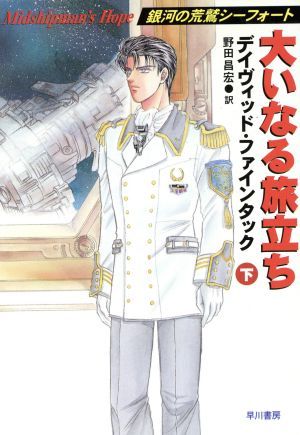
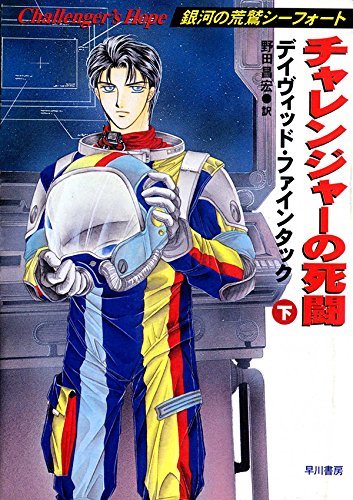
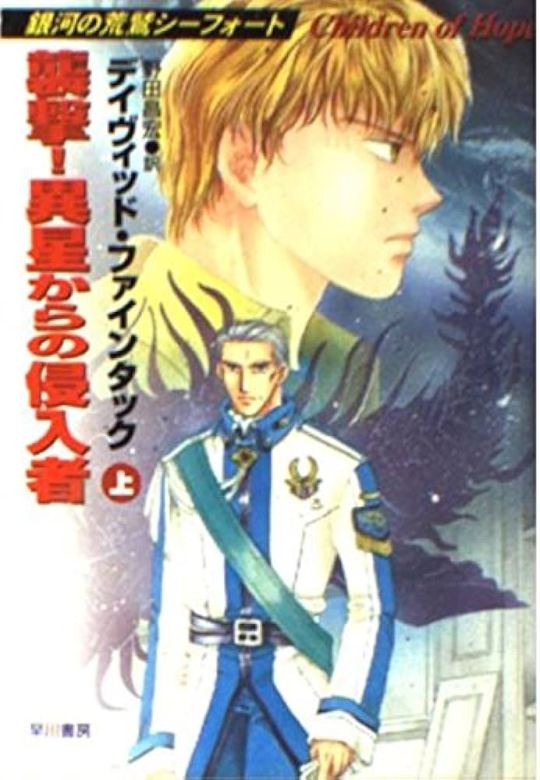
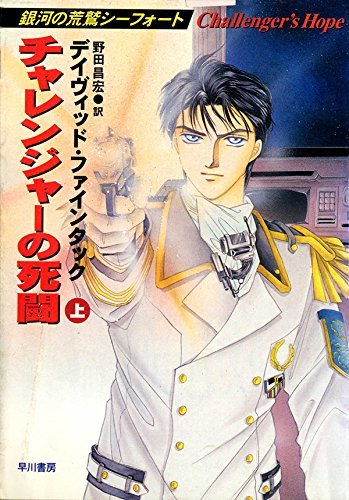
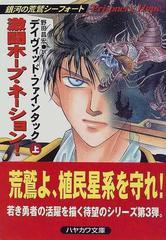

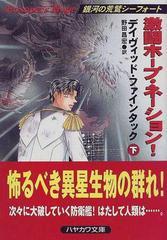


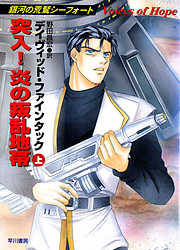
covers for the japanese translation of david feintuch's seafort saga
2 notes
·
View notes
Text

#the way feintuch talks about his own characters bro#the earnestness... the softness...#he does nonetheless put seafort through every layer of hell and then some with no mercy but he's really sweet in the forward at least :'D#seafort saga#david feintuch#me
2 notes
·
View notes
Text
the seafort saga book six actually drives me insane to no end because p.t. and jared. are actually in a committed romantic and sexual relationship.
feintuch best friends who broke the feintuch best friend curse.
all that effort feintuch put into showing how much they paralleled both seafort and jason, and, if you look to his other series, rodrigo and rustin.
and they end up the happiest out of all feintuch best friend pairs. because they accepted their love for each other???? because they lived together and had plans to raise a child together???? because they were going to get married????
with the way both seafort and rodrigo are, i feel like confirmation isn't really necessary, but feintuch nonetheless literally gave it. that's. oh. okay.
#when i say “broke the curse” i only mean the recognizing their mutual feelings part not the other part but shh#david feintuch#seafort saga#rodrigo of caledon#me
1 note
·
View note
Text

good for them tbh
#sorry love vax but he's dead and gone so homoerotic close friend number 8 it is!!!#tolliver's my all time fav of the homoerotic close friends though#the last line takes me OUTTTT#seafort saga#david feintuch#me
0 notes
Text
no matter how insane i am about rodrigo of caledon i will never be able to properly defeat my father, who completely unprovoked found the house listing david feintuch had lived in before his passing and sent it to me in an email with no context
#praying and hoping he won't actually follow through on his stated intent to actually read roc#but i do hope the temptation of the entire seafort saga sitting in a box in his office until i return in june gets him#yes i think rodrigo is significantly better written than seafort but the former is a lot more blatant in its homosexual themes sooo#me
1 note
·
View note
Text
feintuch is so good because he takes the super common trope of "what if we relied on the computer and it betrayed us" but instead of it being because of evil ai gaining sentience it's because of a manmade error...
and the manmade error was because the programmers were too busy talking about boobs. rip the groundsider who had tits so good they killed 6 crew members and 8 passengers
#started reading the seafort saga instead of rereading the roc saga again and#IT'S SO GOOD ghghhh#rodrigo if he was normal... what an experience#me
1 note
·
View note
Text
seafort saga fandom doesn't exist so here are some things he says about rodrigo of caledon too for two other people here:
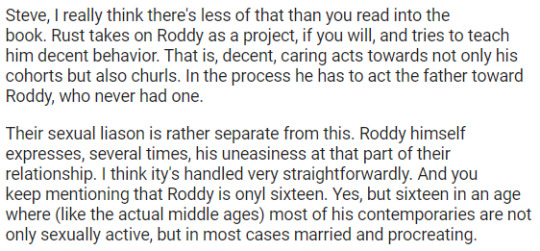

this one's mostly just him responding to another comment but i like that comment a lot so:
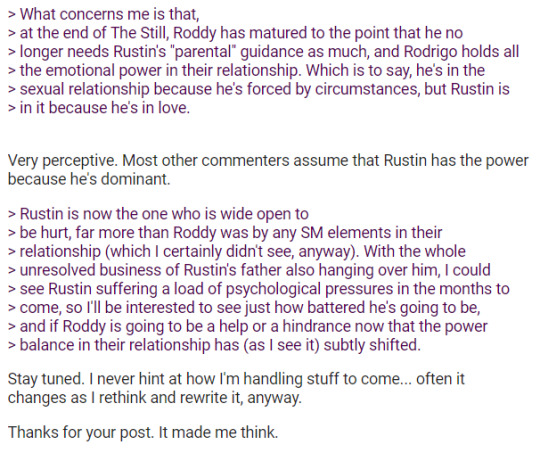
and he says this on the possibility of a third book, but he also says every book past book 4 of the seafort saga was going to be the last book at different points in this forum, so take it with a handful of salt:

11 notes
·
View notes
Text
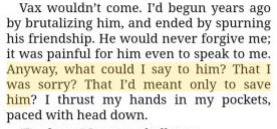
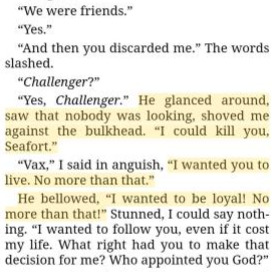
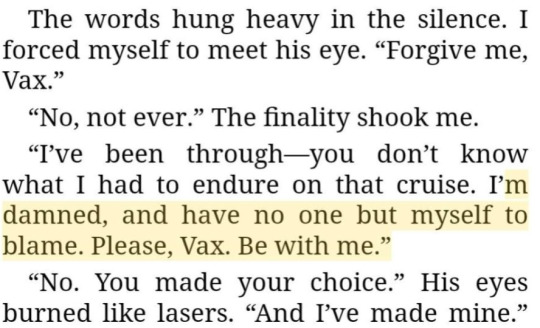
okay the seafort saga may not have rodrigo and rustin levels of insane gay people. but it has this.
#finished book 1 in 3 days and book 2 in only 1 day#trying to go slow through book 3 but gahhh#still terribly uncanny to see a feintuch protagonist actually sleep with women... actually get married...#both marriages end with the poor wife in hysteria but yk#david feintuch#me
3 notes
·
View notes
Text
Patriarch's Hope by David Feintuch
Nick Seafort is back, and this time he's not letting any other suckers do the talking. This is back to basics Seafort. He's in charge, terrible things happen completely outside his control, he blames himself while they get worse, then he saves humanity at the last possible second.
The first four Seafort books were mainly adventure stories about duty and integrity. Voices was about poverty and class disparity. Patriarch is all about the environment and how it's our responsibility to care for the Earth. In spite of the overwhelming message and Nick being an old man now, Patriarch managed to reclaim a lot of the feeling of space and adventure that was missing from Voices.
I would recommend this book to: someone who liked Midshipman's through Fisherman's, but was turned off by Voices.
Book rating: C+
Cumulative series rating: C+
0 notes
Text
Voices of Hope by David Feintuch
Thanks to the ambitious epilogue at the end of Fisherman's Hope, Voices of Hope was pretty much forced to start two and a half decades after that book. Voices of Hope also takes the wild step of being written from the perspective of someone other than Nick Seafort; in fact, it's by several someones.
One nice thing about Voices: Philip "P.T." Seafort is way more of a bad-ass than his dad. When dudes come at P.T., his first instinct is to drop them and he worries about it after he's done. With his bare hands, he takes on groups of larger dudes with knives and wins. (He's 12 years old.)
One absolutely terrible thing about Voices: two of the five P.O.V. characters are transpops and Feintouch wrote their sections entirely in the "transpops dialect" also known as "lolspeak as viewed by an old dude in 1996 after being pushed through a meat grinder." (The dude or the lolspeak.) No grammar, limited vocabulary, and all of the words are actually phrases that have been mashed together into one word and/or shortened versions of words it makes no sense for them to have been using prior to the devolution of their language. Transpops were the least interesting and most irritating part of Challenger's Hope and Fisherman's Hope, so I really don't know why Feintouch moved away from interstellar threats to concentrate entirely on them. (Aside from the obvious allegory about how we treat the underclass in our society, etc. I'm not saying it's an unworthy topic, just an uninteresting one.)
Overall, it was a decent read. In some ways, it's reminiscent of Star Trek: Deep Space 9's two-parter "Past Tense." I would only recommend it to a serious genre fan and would definitely not use it to bring a new reader into sci-fi.
Book rating: decent
Cumulative series rating: pretty ok.
0 notes
Text
Fisherman's Hope by David Feintuch
Nick Seafort is back for this fourth and final (except for the next two books) installment of the Seafort Saga. After once again saving all of humanity and hating himself for it, Nick has been put in charge of the naval academy. While there he has to be a role model for the cadets, manage a few unruly staff members, help his wife recover from brain problems, keep politicians from pulling his funding, and eventually save all of humanity from something.
Nick bumbles through situation after situation by being slow on the uptake, brutally honest, and lucky as hell. As with previous books, Nick Seafort's relationships all follow the same arc:
1. Nick says/does something horrible to someone.
2. Nick convinces himself that they will hate him forever.
3. That person loves and adores Nick Seafort forever.
4. The fish show up and wreck everyone's shit.
In spite of the similarities to previous books, it was a fun read. I'll probably eventually get around to the last two books eventually, even if the author claimed the series was over forever at the end of this book.
#Nick Seafort#Seafort Saga#david feintuch#David Fine-touch#Fish#Transpop dialect is completely awful and needs to die
0 notes
Text
Challenger's Hope by David Feintouch
Challenger's Hope is the second novel to follow the exploits of Nick Seafort. A few months have passed since the end of Midshipman's Hope and Nick Seafort is looking forward to his first intentional command aboard the Challenger. It's a smaller vessel than the Hibernia, but it's well armed and ready to defend Hope Colony. Unfortunately for Commander Seafrost, the slings and arrows of outrageous fortune have made him a Job for the 22nd century. Like in Midshipman's Hope, any time it seems like things are as bad as they can possibly get, it's time to brace yourself for worse. I would rate Challenger's Hope as more or less equal to Midshipman's. It's a thoroughly worthwhile read for fans of the genre, but not a great place to win over new readers. Next time: I'll be back with Harry Dresden and Jim Butcher for Grave Peril.
0 notes